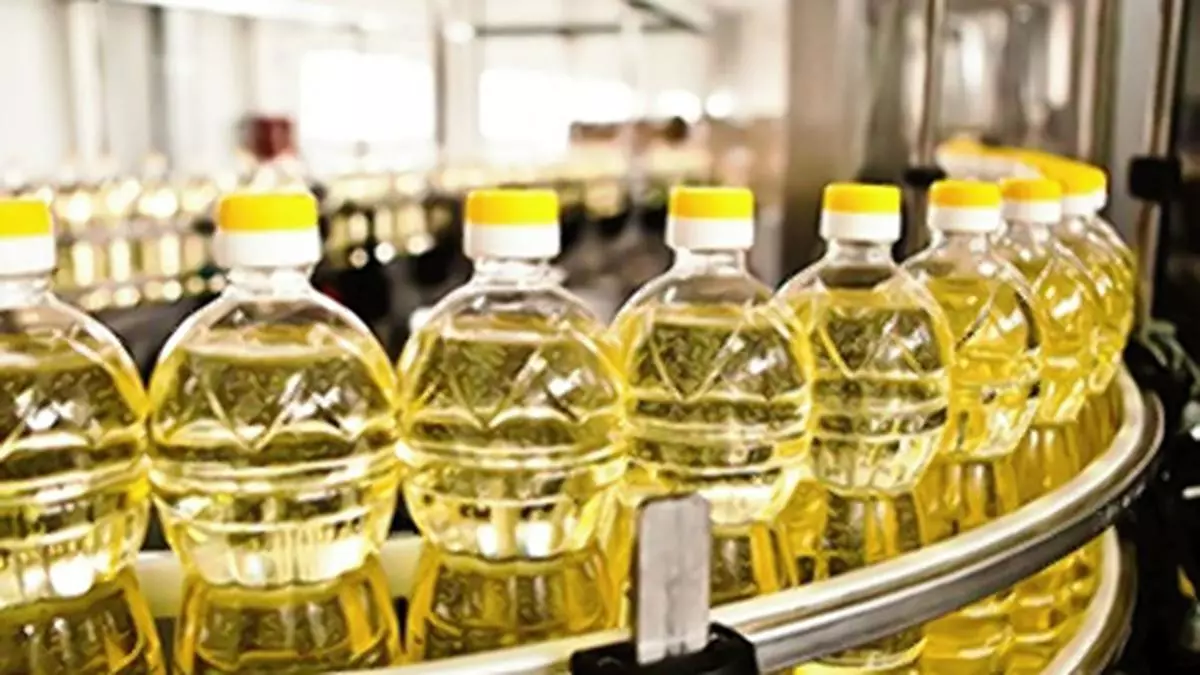Edible oil imports up by 25% in first 9 months of 2022-23 season
India’s edible oil imports increased by 25.04 per cent in the first nine months of the current oil season to October. Data from the Solvent Extractors Association of India (SEA) showed that 121.22 lakh tonnes (lt) of edible oil were imported the November-July period of the current season against 96.95 lt in the same period a year ago.
BV Mehta, Executive Director of SEA, said looking at the import of edible oils during the first three quarters of the current oil year, it will not be a surprise to see imports rising to a record 155 lt. The total import of edible oil was the highest at 151 lt in 2016-17.
He said the demand has returned with sharp fall in domestic prices of edible oils.
Jump in July import
Quoting the import data for July, he said the import of crude palm oil (CPO) increased to 8.41 lt in July against 4.66 lt in June, up 80.47 per cent. Import of RBD palmolien surged to 2.37 lt (2.17 lt in June). The overall import of palm products increased to 10.86 lt in July compared to 6.83 lt in June, a 59 per cent growth.
Meanwhile, the import of soyabean oil declined to 3.42 lt in July from 4.37 lt the previous month. He said the import of sunflower oil increased to 3.27 lt (1.91 lt) during the period.
Mehta said India is sitting on a huge stock for nearly 45 days requirements and supplies will be comfortable during the coming festival season.
Sharp jump
He said the import of palm products increased sharply due to price parity in the first three quarters of the oil year. India imported 71.17 lt of palm products during November-July against 48.61 lt in the year-ago period. With this, the share of palm oil products in the total edible oil imports increased to 59 per cent from 50 per cent.
Stating that the import of RBD palmolein is soaring, he said the overall refined oils (RBD palmolein) reached 14 per cent (16.41 lt) of the total edible oil imports during the first nine months of 2022-23 against 5 per cent (6.86 lt) in 2020-21, and 3 per cent (4.21 lt) in 2019-20. This is seriously affecting the domestic palm oil refining industry, he said.
Soft oils share dip
On the soft oils, he said the shipment of sunflower and soyabean oils increased in the last four months. The overall import of soft oils was at 50.04 lt during the first nine months of the oil year against 48.34 lt in the year-ago period, up 3.52 per cent. The share of soft oils in the total edible oil imports reduced to 41 per cent from 50 per cent.
India imported of 28.24 lt of soyabean oil (33.30 lt), and 21.80 lt of sunflower oil (15.03 lt) during the first nine months of the oil year 2022-23.
Major suppliers
Indonesia and Malaysia were the major suppliers of RBD palmolein and CPO to India during November-July of 2022-23. Indonesia exported 26.27 lt of CPO and 13.39 lt of RBD palmolein, followed by Malaysia at 18.62 lt of CPO and 2.73 lt RBD palmolein.
Stating that Thailand is emerging as a regular supplier of CPO to India, he said it exported 6.71lt of CPO and 11,499 tonnes of RBD palmolein during the first three quarters of the oil year 2022-23.
India imported 15.61 lt of crude soyabean de-gummed oil from Argentina, and 10.82 lt from Brazil during the period.
Russia supplied 6.61 lt of crude sunflower oil to India, followed by Ukraine at 4.47 lt, and Argentina at 3.01 lt.
Sowing
Stating that India’s monsoon is performing relatively well, Mehta said most of the oilseed production areas received ample rain for sowing.
As on August 4, North-West India and Central India received excess rainfall, while East and North East India are still in deficit. However, the country as a whole has received 4 per cent above the normal rainfall.
He said the acreage under oilseeds was reported at 179.6 lakh hectares as on August 4 against 175.1 lakh hectares during the year-ago period. The soyabean acreage has been reported at 122.4 lakh hectares against 117.6 lakh hectares, up 4.76 lakh hectares. He said the castor coverage has been reported at 4.12 lakh hectares against 2.89 lakh hectares, up by 1.23 lakh hectares. The groundnut crop is more or less same compared to the last year, he added.
